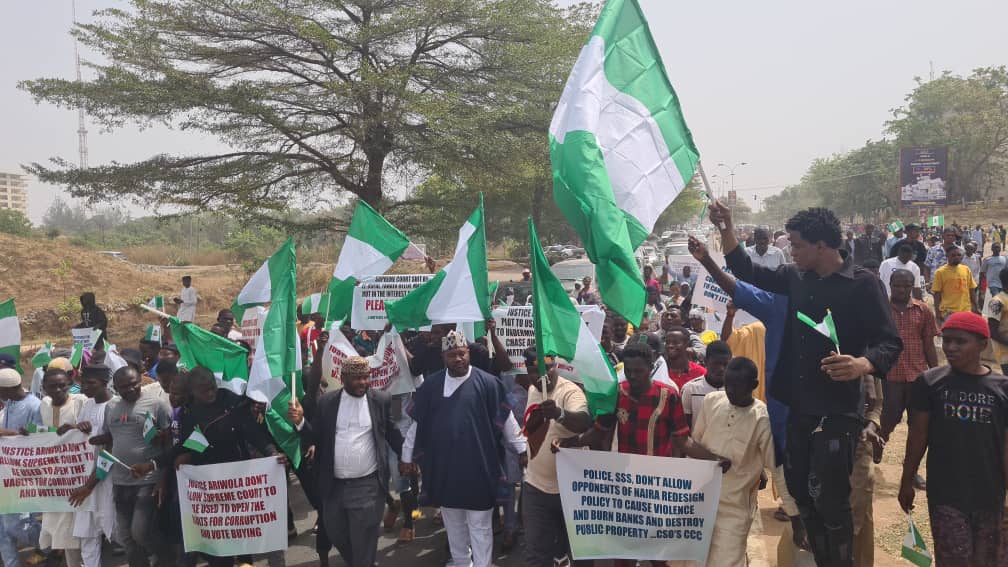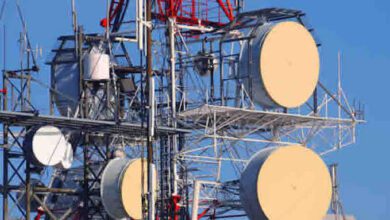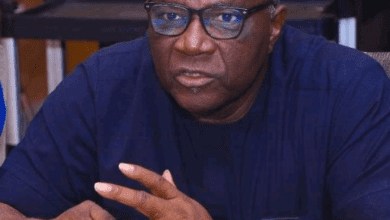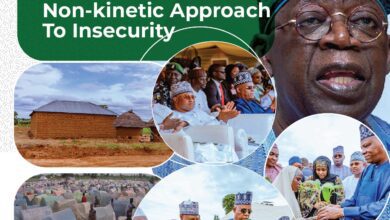OPINION: Tinubu’s Marching Orders On Slain Soldiers And The Issues At Stake
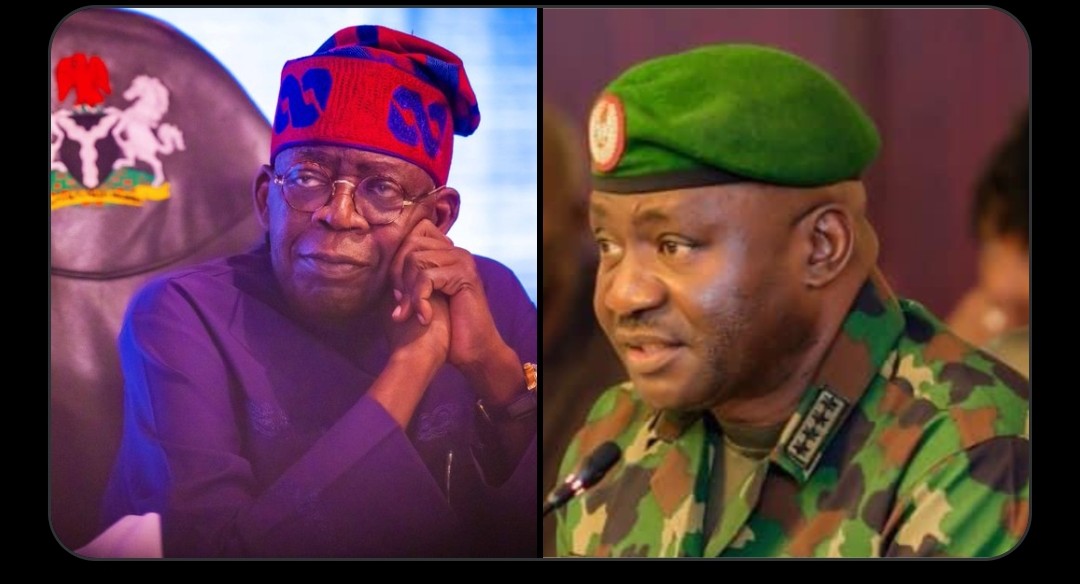
The ultimate measure of a leader is defined by how he responds in times of emergencies; it also goes to demonstrate the attitude, courage and compassion in him. President Bola Ahmed Tinubu’s response to the killing of 16 soldiers during a peacekeeping mission in Delta State aptly captures the true definition of leadership. Immediately the report of the attack got to the President, he issued a statement deploring the gory and satanic act.
In condemning the killing of the senior officers and soldiers during the peace mission, President Tinubu noted that any attack on the Armed Forces or any of their personnel amounts to an attack on the Nigerian State, a dastardly act he said will not be condoned. To this effect, the president granted the military full authority to go after the culprits and bring them to book.
Before the merchants of mischief begin to interpret the President’s declaration to suit their divisive tendencies, it will suffice to expatiate. Put succinctly, what President Tinubu is saying is that the death of these soldiers highlights a horrifying reality that threatens Nigeria’s sovereignty. The idea is that in Nigeria, no life is valued more than another. The loss of a civilian life in communal clashes is equally tragic as the loss of a soldier on a peacekeeping mission. We are one country and the pain of one reverberates through the entire nation.
The loss of the gallant officers serves as a stark reminder of the urgent need for unity and collaboration in the pursuit of peace and stability. In the wake of some recent tragic events in Nigeria, it has become increasingly evident that the responsibility for fostering peace in the nation lies not solely on the shoulders of the security forces but on every single Nigerian citizen.
The incident in the Okuama Community in Ughelli South local government area of Delta State where soldiers deployed to maintain peace were ambushed and killed by community youths, highlights the critical need for all citizens to come together in a unified effort to address the underlying issues that fuel violence and conflict in the country. Regardless of one’s role in society, whether a member of the military, Department of State Service (DSS), police, or an ordinary citizen, the responsibility to uphold peace and security rests on each and every one of us.
The soldiers in Okuama and Okoloba communities were deployed to quell a conflict they did not instigate. They were not the enemy; they were instruments of peace, tragically caught in the crossfire of pre-existing tensions. Their sacrifice underscores the urgency for a fundamental shift in perspective.
It is, therefore, essential for all Nigerians to recognize that every life lost, whether in the military or among civilians, carries equal weight and significance. The sacrifice of the soldiers from the 181 Amphibious Battalion, including a commanding officer, two majors, one captain, and twelve soldiers, underscores the profound impact of violence on all segments of society. Each loss is a loss for the entire nation.
Make no mistake; some elements – enemies of Nigeria or those angry with President Tinubu’s guts to think of changing the status quo and ensure that it is no longer business as usual, may be trying to skew negativity into Tinubu’s marching orders to ensure justice for the slain soldiers. But the culprits must be made to account for their infractions. If this is allowed to go unpunished the calculated sabotage will continue. This must sink well with mischief makers.
Moving forward, it is imperative for Nigerians to shift towards a collective mindset that views the pain and suffering of any individual as a shared burden for the entire country. By fostering a sense of unity and solidarity, we can begin to address the root causes of conflict and work towards building a more inclusive and harmonious society. Every citizen has a role to play in promoting peace – from fostering dialogue and understanding within communities to supporting initiatives that promote reconciliation and healing.
As we reflect on the tragic loss of lives in Delta State and other regions affected by violence, let us recommit ourselves to the vision of a greater Nigeria built on principles of unity, empathy, and mutual respect. By standing together as a nation, we can overcome the challenges that threaten our collective well-being and pave the way for a brighter and more peaceful future for all Nigerians.
The sacrifice of the soldiers in Okuama cannot be in vain. Their deaths serve as a stark reminder that peace is not something bestowed by the state; it is built by everyday citizens. We must move beyond rhetoric and take concrete steps toward building a more tolerant and inclusive Nigeria.
Let this be a turning point. Let us choose dialogue over violence, understanding over prejudice and unity over division. A nation where every life is valued, where communities thrive together, and where peace prevails is the Nigeria we all deserve.
Furthermore, as Nigeria strives to consolidate its democratic institutions and practices, it is essential to address the underlying issues that have hindered constructive military-civilian relations. President Tinubu’s Renewed Hope Agenda represents a significant step towards fostering unity and collaboration among all segments of society. By emphasizing fairness, equity and justice, this agenda offers a framework for building a more inclusive and harmonious Nigeria.
Believe it or not, the Nigerian security architecture is on the right track under President Tinubu. It is bouncing back, and it is only a matter of time before we get done with terror activities in the country. Constitutionally, the primary responsibility of the government is the security of lives and property the same way the citizens owe their country patriotism. No government can perform above the level of patriotism of its citizens as the government does not exist in isolation.
For Nigeria, a concatenation of factors has led to a challenging security environment in the last decades. However, the vibes have changed since 2023 when President Tinubu took over power. The result of reinvigorated war against terrorists has been so evident recently. The President has thrown everything in the works to ensure security challenges are curtailed.
Let us support President Tinubu’s vision of uniting Nigeria, for it is only through collective action that we can truly build a brighter future for ourselves and for generations to come.
The Renewed Hope Agenda holds the promise of a better future for all Nigerians, transcending historical divisions and instilling optimism for a prosperous nation. By focusing on revitalizing Nigeria’s economic potential, promoting prosperity, and fostering unity, this agenda aligns with the aspirations of citizens across the country who seek a brighter tomorrow.
As the nation navigates its path toward progress and development, it is imperative to overcome past grievances and work towards a shared vision of a peaceful and prosperous Nigeria. This President’s commitment to bettering the lives of families resonates with the broader goal of building a society where every individual feels valued, secured and supported.
Stanley Nkwocha is senior special assistant to the President, Media and Communications (Office of the Vice President) and can be reached on X @stanleynkwocha_

